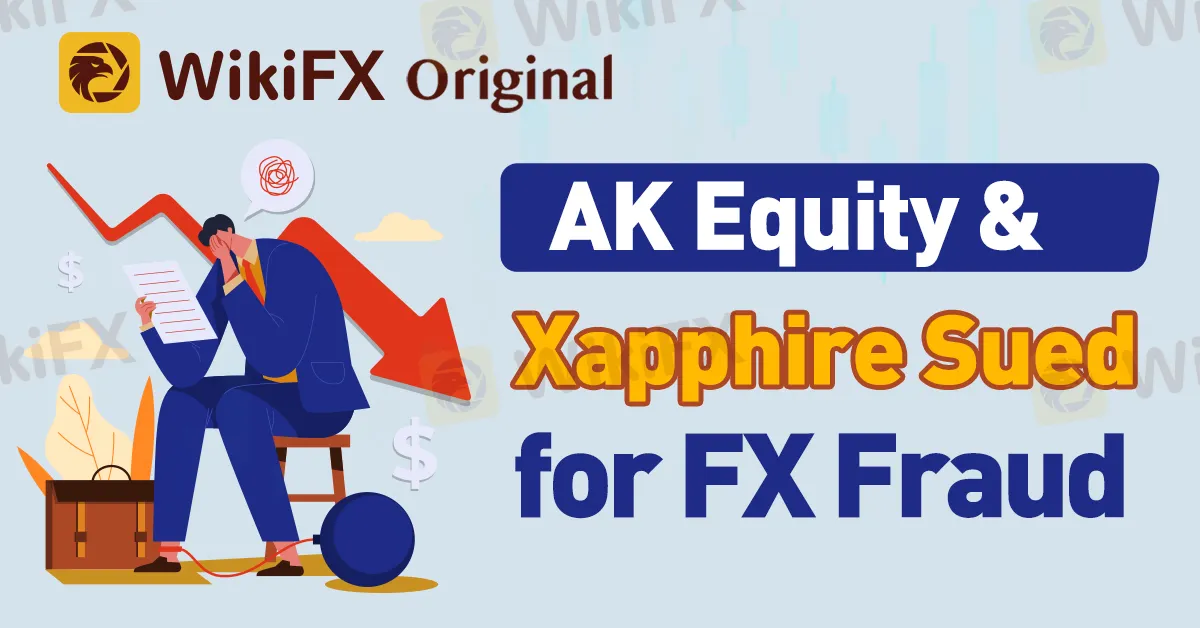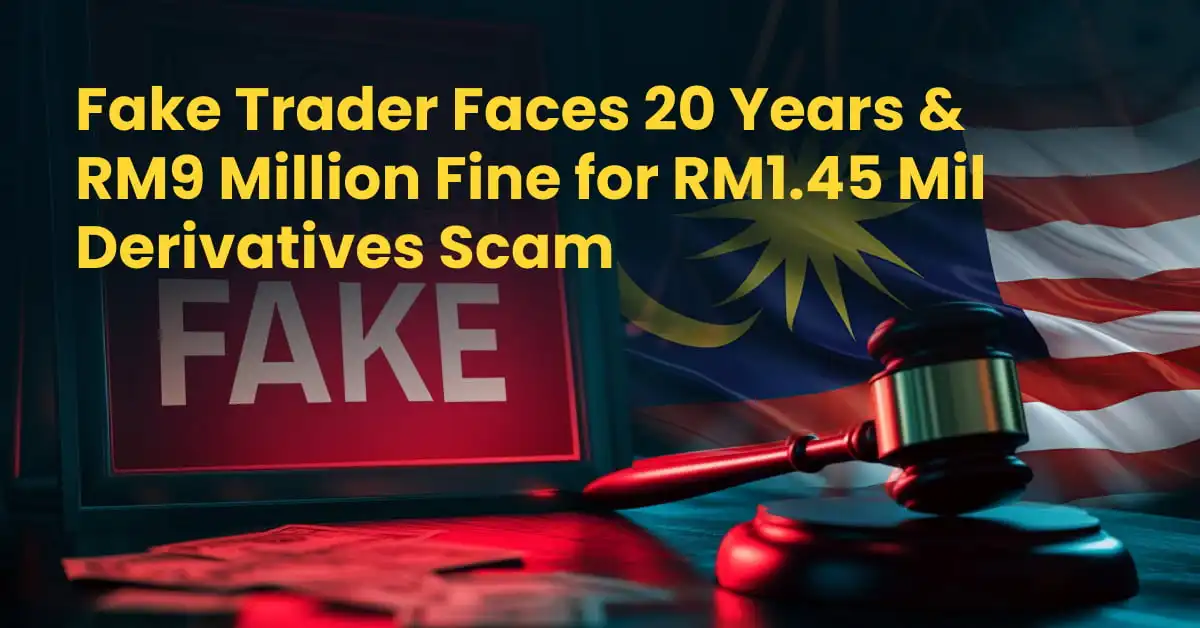简体中文
繁體中文
English
Pусский
日本語
ภาษาไทย
Tiếng Việt
Bahasa Indonesia
Español
हिन्दी
Filippiiniläinen
Français
Deutsch
Português
Türkçe
한국어
العربية
AK Equity & Xapphire Sued for FX Fraud
Abstract:Commodity Pool Operator Ordered to Pay $24 Million for Forex Fraud Targeting Minority Group as CFTC continues to crack down on forex-related fraud schemes.

A US district court in Wisconsin has issued a judgment ordering Kay Yang, a commodity pool operator, and her companies to pay over $24 million in connection with a retail forex fraud scheme that specifically targeted members of the Hmong minority group in the country. The payment includes a restitution payment of $13.6 million and a civil monetary penalty of $10.3 million.
The Commodity Futures Trading Commission (CFTC) announced the court order, highlighting that it was entered last Monday. Additionally, the court ruled that Chao Yang, Kay's husband, must pay $1.4 million in illegal funds he received from the fraudulent scheme.
The CFTC filed a lawsuit against Kay and her companies, AK Equity Group LLC and Xapphire LLC, in April of the previous year. The allegations stated that they unlawfully solicited a minimum of $15.7 million from approximately 67 investors, enticing them to participate in a commodity pool supposedly for forex trading. At the time, the Securities and Exchange Commission (SEC) also brought charges against Kay in relation to the scheme.
According to the CFTC, Yang and her companies engaged in deceptive practices and withheld critical information throughout the scheme, which took place from April 2017 to March 2020. It was also stated that the defendants also misappropriated at least $4.8 million of pool participants' funds and spent that money on Yang's personal expenses, including spending nearly $1.4 million at casinos and on luxury hotels and cars.
This recent court order demonstrates the ongoing efforts of the CFTC to combat fraudulent and unregistered forex firms operating within the country. In late April, the regulatory agency charged 14 retail FX dealers and futures commission merchants for falsely claiming to be registered with the agency. Among the dealers, which purported to be based in the US, UK, and Sweden, were Cross Trade FX, Volfxtrade, TFX Trading, and Bit Trading.
Earlier in February, the CFTC filed a lawsuit against five individuals and three associated companies for their involvement in three interconnected forex trading Ponzi schemes totaling $145 million. The schemes allegedly defrauded over a thousand investors, and the regulator is seeking to recover the investors' funds while pursuing civil penalties against the individuals involved.

Disclaimer:
The views in this article only represent the author's personal views, and do not constitute investment advice on this platform. This platform does not guarantee the accuracy, completeness and timeliness of the information in the article, and will not be liable for any loss caused by the use of or reliance on the information in the article.
Read more

Malaysian Finfluencers Could Face RM10 Million Fine or 10 Years in Prison!
A new regulatory measure by the Securities Commission Malaysia (SC) is set to change the country’s online trading and financial influencer landscape. Starting 1 November 2025, any trader or influencer caught promoting an unlicensed broker could face a fine of up to RM10 million, a prison sentence of up to 10 years, or both.

Juno Markets: A Closer Look at Its Licenses
When selecting a broker, understanding its regulatory standing is an important part of assessing overall reliability. For traders seeking to protect their capital, ensuring that a platform operates under recognised and stringent oversight can make all the difference. Keep reading to learn more about Juno Markets and its licenses.

Fake Trader Faces 20 Years & RM9 Million Fine for RM1.45 Mil Derivatives Scam
A Malaysian man who posed as a ‘licensed’ futures trader has been handed a 20-year prison sentence and a RM9 million fine after admitting to running a fraudulent derivatives investment scam.

Complaints Against Weltrade | Traders Can’t Get Their Money Back
Opening a trading account and watching your capital grow can feel exciting and full of promise until the moment you realise you cannot get your money back. That’s when the dream turns into a nightmare. Recent complaints submitted to WikiFX reveal an unsettling pattern seen at Weltrade where deposits vanish, withdrawals stall for days or even months, and support channels lead nowhere.
WikiFX Broker
Latest News
Scam Alert: Know the Risky Side of InstaForex in India
Going to Invest in FXCL? Move Back to Avoid Scams & Losses
What Is Forex Trading Fee? A Beginner’s Guide
Understanding UAE’s Financial Market Regulation: SCA and DFSA
What Is Indices in Forex? A Beginner’s Guide to Trading Forex Indices
FBI Issues Urgent Warning on Crypto Recovery Scams
Robinhood Moves Toward MENA Expansion with Dubai DFSA License Application
How to Use Retracement in Trading
CySEC warns the public against 17 investment websites
IBKR Lite Singapore Debuts with Zero-Commission US Stock Trading
Currency Calculator


